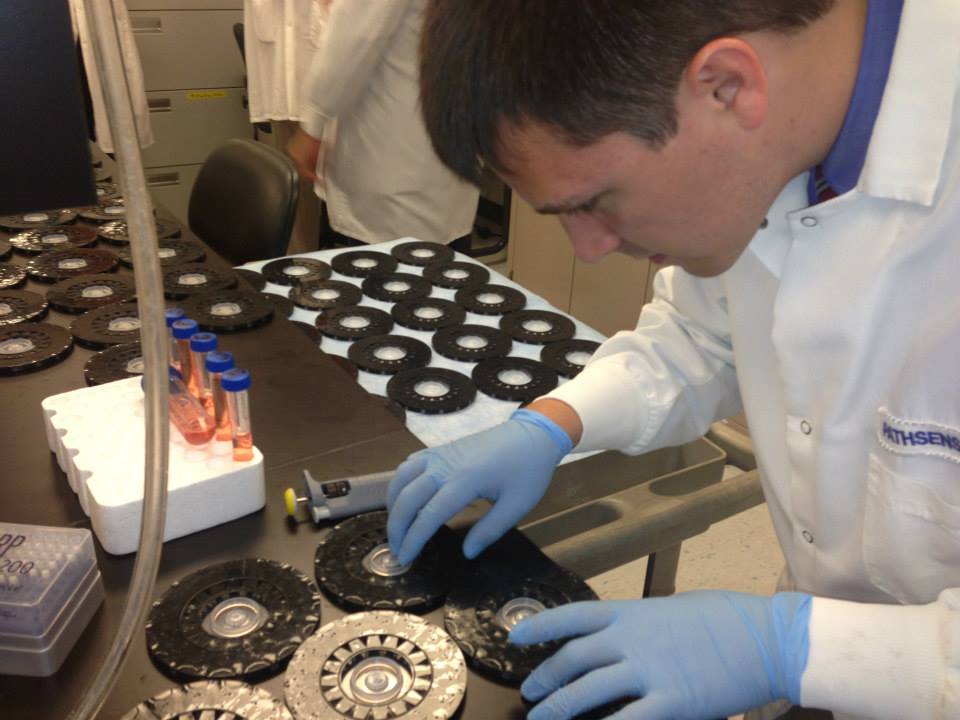A Baltimore-based biotech company that develops sensor systems to detect dangerous diseases was already poised for attention in early 2015: It planned to roll out a device that detects Ebola. Now the company is also looking to expand to China.
On Tuesday, PathSensors announced a $500,000 investment from Michael Song, president of Shanghai Qi Fa Electronics Co. The money will be used to grow product distribution in the U.S., and Song will also help the company expand to China, according to a statement.
The company is developing a sensor that can detect Ebola on surfaces.
PathSensors, which is based in the University of Maryland BioPark and was a 2012 InvestMaryland Challenge participant, makes devices that can identify the presence of potentially harmful bacteria, viruses or toxins.
The company’s devices use CANARY technology, named for the birds that were sent into coal mines, to detect the presence of disease-causing agents. If a pathogen is detected, the device “sends an intracellular calcium release that that in-turn activates bioluminescent proteins to generate the emission of light,” according to company literature.
In other words, it lights up on a screen. A reading takes about 5 minutes.
The technology was initially developed at MIT’s Lincoln Laboratory for use in biodefense. One of the devices is used to detect potential bioterrorism agents like ricin, anthrax or black plague. Another pair of devices was designed for agriculture to detect pathogens that could cause diseases like salmonella, E. coli and listeria, in food products and plant materials. It’s already being used by the FDA and USDA. The company’s BioFlash devices can detect airborne pathogens. Another product, called the Zephyr, can detect the pathogens using liquid and surface samples.
Using the surface detection technology, the company is also developing a sensor that will be able to detect Ebola on surfaces that could be of use in areas where Ebola exposure is feared. It is slated to be ready in early 2015. The same technology used to develop the Ebola sensors could also be used to detect MERS and SARS, the company says.
Song’s investment, which follows a seven-figure financing round in 2013 and 2012 InvestMaryland grant, will help the company expand the existing products in the U.S. He will also help the company expand into China.
“In China alone, I foresee tremendous opportunities in helping food processors cope with bird flu and salmonella with onsite sample testing in minutes,” Song said in a statement.
Join our growing Slack community
Join 5,000 tech professionals and entrepreneurs in our community Slack today!
Donate to the Journalism Fund
Your support powers our independent journalism. Unlike most business-media outlets, we don’t have a paywall. Instead, we count on your personal and organizational contributions.

A founder’s vision comes alive at a showcase for Baltimore’s student entrepreneurs

Traditional PPE isn’t made for everyone. Here’s how one startup is fixing it.

Comcast introduces ultra-low lag Xfinity internet that boosts experiences with Meta, NVIDIA and Valve


